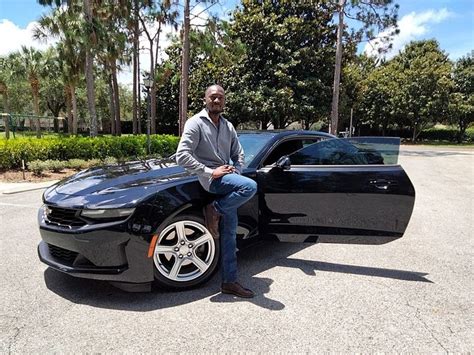Silent luxury is emerging as a defining trend in the modern lifestyle, emphasizing quality, sustainability, and thoughtful consumption over ostentatious displays of wealth. This concept aligns seamlessly with the principles of mindful consumption, which advocate for deliberate and meaningful choices in our daily lives. In the automotive world, this translates to selecting vehicles and products that offer exceptional craftsmanship, eco-friendly features, and enduring value. As consumers increasingly prioritize mindfulness and sustainability, silent luxury is reshaping the landscape of consumption, encouraging a more conscious and purposeful approach to living. This article explores how this trend is influencing modern lifestyles and consumer behavior.
Come join lealhotel.com in exploring this topic extensively.
1. Introduction to Silent Luxury
Silent luxury embodies a philosophy that prioritizes subtlety and sophistication over blatant extravagance. This concept emphasizes quality, sustainability, and mindful consumption, offering a refined and understated elegance that speaks volumes without fanfare. In today’s era, where conscious consumerism is gaining momentum, silent luxury resonates with the desire for meaningful and intentional choices. This trend isn’t about showcasing wealth but rather appreciating the finer details and craftsmanship behind products. It appeals to those who seek authenticity and a deeper connection to their possessions, valuing experiences and sustainability over fleeting fashion. In the automotive world, silent luxury manifests through vehicles that seamlessly blend cutting-edge technology, eco-friendly features, and timeless design. These cars provide a serene driving experience, unparalleled comfort, and a dedication to minimizing environmental impact. Silent luxury encourages a reevaluation of our consumption habits, prioritizing long-term value and ethical considerations. As this trend flourishes, it reshapes modern lifestyle choices, prompting consumers to embrace a more conscious and purposeful approach to luxury.

2. Understanding Mindful Consumption
Mindful consumption is a philosophy that encourages individuals to make conscious and thoughtful choices about their purchases and usage. It goes beyond the mere act of buying, taking into account the broader implications of consumption on individual well-being, society, and the environment. This approach promotes a transition from impulsive buying to a more contemplative process, emphasizing quality, necessity, and sustainability.
Mindful consumption is fundamentally about understanding the entire journey of a product, from its creation to its eventual end. This awareness encompasses a grasp of its manufacturing process, the materials used, the labor involved in its production, and the environmental impact it carries. By prioritizing ethically sourced and environmentally sound products, consumers can actively contribute to a more sustainable and just world.
In the automotive industry, mindful consumption means selecting vehicles and products that reflect these values. This involves prioritizing fuel efficiency, minimizing emissions, and considering the overall environmental footprint of manufacturing and operating a vehicle. It also entails supporting brands dedicated to sustainability and ethical practices.
Mindful consumption empowers individuals to make choices that benefit both themselves and the planet. This conscious approach cultivates a deeper understanding of the products we use and their impact on our lives and the environment.

3. Why Mindful Consumption Matters
Mindful consumption matters because it addresses the pressing challenges of environmental sustainability, social equity, and personal well-being. In a world increasingly strained by overconsumption and waste, adopting a mindful approach to consumption can lead to significant positive impacts.
Environmental sustainability is one of the primary reasons mindful consumption is crucial. The production, use, and disposal of products have substantial environmental footprints. By making thoughtful choices, such as opting for eco-friendly and sustainably produced items, consumers can help reduce pollution, conserve resources, and mitigate climate change. In the automotive industry, this means selecting vehicles with lower emissions, better fuel efficiency, and sustainable manufacturing practices.
Social equity is another critical aspect. Many consumer goods are produced under conditions that exploit labor and disregard workers’ rights. Mindful consumption involves supporting companies that adhere to fair labor practices and ethical standards. By doing so, consumers can promote better working conditions and contribute to the well-being of workers worldwide.
On a personal level, mindful consumption enhances well-being by fostering a sense of purpose and satisfaction. It encourages individuals to focus on quality over quantity, leading to more meaningful and fulfilling experiences. In the context of automotive products, this means enjoying the lasting value and superior craftsmanship of a thoughtfully chosen vehicle.
Ultimately, mindful consumption empowers individuals to make choices that align with their values and contribute to a more sustainable and equitable world. It transforms the act of consumption into a purposeful and impactful endeavor, benefiting both people and the planet.

4. How Silent Luxury Aligns with Mindful Consumption
The principles of silent luxury and mindful consumption are inherently connected, both prioritizing quality, sustainability, and deliberate decision-making. They stand united in their rejection of impulsive consumerism, advocating for a more conscious and meaningful approach to acquiring and possessing goods.
Silent luxury embodies understated elegance and superior craftsmanship, aligning perfectly with mindful consumption. This approach prioritizes longevity and timeless design over fleeting trends, encouraging consumers to invest in items that offer enduring value and satisfaction. In the automotive world, this translates to selecting vehicles that not only deliver exceptional performance but also incorporate sustainable materials and eco-friendly technologies.
Sustainability is a cornerstone of both silent luxury and mindful consumption. Silent luxury brands prioritize ethical production, sourcing materials responsibly and minimizing their environmental footprint. This aligns perfectly with the values of mindful consumers who strive to reduce their carbon footprint and support businesses that share their commitment to sustainability.
Moreover, silent luxury elevates the consumer experience by emphasizing the subtle nuances and narrative woven into each product. This deeper understanding cultivates a more profound bond with our possessions, imbuing every purchase with greater significance. For automotive aficionados, this translates to choosing vehicles that embody a dedication to quality and responsible environmental practices.
By embracing mindful consumption, silent luxury transcends mere lifestyle choices and fosters a more sustainable and ethical world. It empowers consumers to make deliberate, meaningful decisions that enrich their lives while positively impacting the planet.

5. The Impact on Consumer Behavior
A growing emphasis on silent luxury and mindful consumption is dramatically altering consumer behavior, pushing for a move towards more deliberate and sustainable purchasing habits. Consumers are increasingly valuing quality, sustainability, and ethical considerations over the pursuit of brand notoriety and ostentatious displays of wealth.
A key shift in consumer behavior is the increasing demand for products that prioritize long-term value and quality craftsmanship. This trend reflects a move away from disposable goods, as consumers opt for items that are carefully crafted and built to last. This preference is clearly demonstrated in the automotive industry, where buyers are increasingly interested in vehicles that deliver both exceptional performance and environmentally conscious features, using sustainable materials.
This shift signifies a heightened consumer awareness, leading them to carefully select brands that align with their values. They seek transparency and accountability, prioritizing companies that actively promote ethical practices and environmental responsibility. As a result, there is a growing demand for brands embracing “silent luxury,” offering products that are both luxurious and sustainable.
Furthermore, the focus on mindful consumption is cultivating a greater understanding of the narratives and principles associated with products. Consumers are increasingly drawn to items that align with their personal convictions, contributing to a feeling of fulfillment and purpose.
In essence, the combined force of silent luxury and mindful consumption is fostering a shift towards a more conscious, sustainable, and meaningful lifestyle. This movement empowers individuals to make choices that positively impact both their personal well-being and the health of the planet.

6. Examples of Silent Luxury Brands
Several brands embody the essence of silent luxury, seamlessly integrating exceptional quality, sustainability, and understated elegance. These brands champion craftsmanship and ethical practices, making them the perfect choice for discerning consumers seeking mindful luxury.
Tesla stands as a leading force in the automotive industry. Renowned for its innovative electric vehicles, Tesla seamlessly blends cutting-edge technology with sustainability. Their cars are not just luxurious; they are also environmentally conscious. Tesla’s dedication to reducing carbon emissions resonates deeply with the principles of mindful consumption.
Lexus also exemplifies silent luxury through its dedication to superior craftsmanship and sustainable practices. Lexus vehicles are renowned for their high-quality materials, advanced technology, and refined design. The brand’s hybrid models offer an eco-friendly alternative without compromising on performance or luxury.
Another noteworthy brand is Patagonia, renowned for its environmental activism and sustainable products. While not an automotive brand, Patagonia’s ethos of producing high-quality, durable goods with minimal environmental impact resonates with the principles of silent luxury and mindful consumption.
Finally, BMW’s i series represents a blend of luxury and sustainability. These electric and hybrid vehicles offer advanced technology, high performance, and eco-friendly features, appealing to consumers who value both luxury and environmental responsibility.
These brands demonstrate that it is possible to enjoy luxury while making conscious, sustainable choices, setting a standard for mindful consumption in the modern world.

7. Challenges and Criticisms
While silent luxury and mindful consumption are appealing concepts, they face several hurdles and critiques. One significant challenge is the higher cost of sustainable and high-quality products. Silent luxury frequently involves premium pricing due to superior materials and craftsmanship, potentially excluding many consumers. This raises questions about exclusivity and whether the benefits of mindful consumption are truly accessible to all socioeconomic groups.
Furthermore, the authenticity of certain brands that claim to represent “silent luxury” can be called into question. Greenwashing, a practice where companies inflate their environmental commitments, erodes the trust in genuinely sustainable practices. Consumers may face challenges in determining which brands authentically uphold ethical and sustainable principles.
A further criticism posits that silent luxury could merely be a veiled form of consumerism. Despite emphasizing quality and sustainability, the inherent consumption patterns may still contribute to environmental strain and resource depletion.
Furthermore, the move towards mindful consumption can create a paradoxical situation. The pressure to make flawlessly ethical choices can lead to stress and guilt for consumers.
Overcoming these challenges demands constant vigilance, open communication, and initiatives to make sustainable luxury more affordable and authentic. This will ensure that conscious consumption reaches a wider range of consumers.

8. Future Outlook and Trends
The future of silent luxury and mindful consumption is bright, with several key trends shaping its evolution. As environmental consciousness and ethical considerations gain momentum, more brands are poised to incorporate sustainable practices into their offerings. Innovations in eco-friendly materials and technologies will propel the development of luxury products that are both high-performing and environmentally responsible.
Consumers are increasingly demanding transparency and authenticity from brands, pushing them to be more open about their sustainability practices and ethical standards. This trend will likely result in heightened accountability and more stringent standards for what is considered “silent luxury.”
Furthermore, the increasing adoption of circular economy practices, including product take-back schemes and upcycling initiatives, will further reinforce mindful consumption principles. This transition will inspire consumers to evaluate the complete lifecycle of their purchases, fostering a more sustainable approach to luxury goods.
In the grand scheme, the convergence of quiet opulence and deliberate consumption will continue to reshape contemporary lifestyle choices, encouraging a more conscious and environmentally responsible way of life.

Silent luxury and mindful consumption are reshaping modern lifestyle choices, emphasizing quality, sustainability, and thoughtful decision-making. By prioritizing craftsmanship and ethical practices, consumers are increasingly aligning their values with their purchases, fostering a more conscious approach to luxury. Although challenges such as cost and authenticity remain, the future holds promise with advancements in sustainable technologies and greater transparency. As these trends evolve, they will continue to encourage a deeper appreciation for meaningful consumption and drive a pos
lealhotel.com